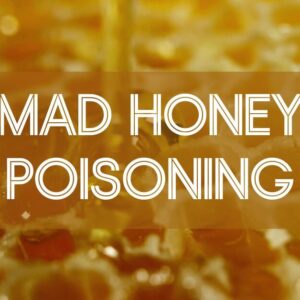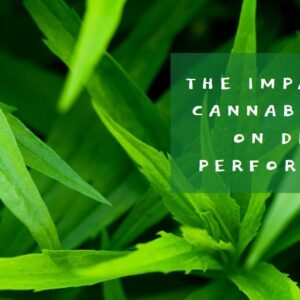In the world of health enigmas, there exists a crucial juncture where forensic toxicology and mental health converge- the realm of dual diagnosis situations. These situations involve people who are facing both substance use and mental health difficulties at the same time. We aim to delve into this intricate link, comprehend the hurdles, and showcase the advancements being made in tackling it.
Forensic toxicology is an important scientific field that examines substances in the human body. It is commonly used in criminal investigations and workplace incidents, but it also plays a significant role in dual-diagnosis cases. By analyzing substances, it reveals crucial information about the complex challenges faced by individuals dealing with both substance use and mental health problems.
The combination of forensic toxicology and mental health in cases of dual diagnosis creates difficulties in diagnosis, treatment, and legal matters. These cases need a careful approach that considers similar symptoms and individual circumstances. In this blog post, we will examine these challenges, discuss obstacles in treatment, and clarify the legal consequences.
Come along with us as we explore the intersection of forensic toxicology and mental health in dual-diagnosis cases. Throughout our journey, we will not only discuss the difficulties involved but also share the progress and cooperative methods that provide hope in comprehending and dealing with this complex situation. Together, let’s discover the intricacies and strive for a more empathetic and successful approach in the realm of dual diagnosis.
Interplay of Forensic Toxicology with Mental Health
Dual-diagnosis cases pose a special challenge because they involve both substance use disorders and mental health conditions. People with mental health disorders may use substances to self-medicate, which makes their symptoms worse and complicates both conditions.
On the other hand, substance abuse can cause or worsen mental health problems, creating a harmful cycle that makes it difficult to diagnose, treat, and handle legally.
Challenges in Dual Diagnosis Cases
1. Diagnostic Complexity
Dual-diagnosis cases present a significant challenge when it comes to making an accurate diagnosis. The combination of substance use and mental health disorders often leads to similar symptoms, which makes it hard for healthcare professionals to determine the main cause.
For example, mood swings, sleep problems, and cognitive difficulties can be linked to either a mental health disorder or substance use, making the diagnostic process more complex.
2. Treatment Hurdles
Dual-diagnosis cases present a significant challenge when it comes to making an accurate diagnosis. The combination of substance use and mental health disorders often leads to similar symptoms, which makes it hard for healthcare professionals to determine the main cause.
For example, mood swings, sleep problems, and cognitive difficulties can be linked to either a mental health disorder or substance use, making the diagnostic process more complex.
3. Stigma and Misunderstanding
The negative perception of mental health and substance use disorders can hinder the proper evaluation and care for individuals with dual diagnosis. People dealing with both conditions may encounter prejudice, unfair treatment, and a lack of comprehension from healthcare professionals and society in general. This can discourage them from seeking assistance and following treatment plans.
4. Self-medication and Relapse Risks
People who have mental health disorders might use substances to try and make themselves feel better. They do this because they want to ease the symptoms that come with their mental health condition. But using substances as a way to cope can make things worse.
It can lead to a higher chance of becoming dependent on those substances and even becoming addicted. To avoid going back to old habits and to have a lasting recovery, it’s important to deal with the main causes of both mental health disorders and substance use problems.
5. Underreporting and Underdiagnosis
Dual-diagnosis cases are often not reported or diagnosed properly. This could be because people are hesitant to share their substance use or mental health issues, healthcare providers may not be aware of the situation, or there is a lack of screening tools that cover both aspects.
As a result, many individuals do not receive the complete care they require, making the difficulties related to dual diagnoses even worse.
6. Legal Implications
Determining the impact of mental health and substance use on criminal behavior can be extremely complicated in legal situations. To establish a strong connection between these factors and criminal actions, a deep understanding of forensic toxicology, mental health, and legal procedures is necessary.
Legal experts may encounter difficulties in accurately assigning blame and creating suitable legal measures in cases involving dual diagnosis.
Advancements and Strategies
1. Advanced Testing Technique
Forensic toxicology plays a crucial role in developing advanced testing methods to improve the detection and identification of substances in the human body. This involves advancements in analytical tools like mass spectrometry and chromatography, which enable more accurate and sensitive analysis.
These techniques are capable of identifying a broader range of substances, including new psychoactive substances and designer drugs that may be relevant in dual diagnosis cases.
2. Pharmacogenomics
The use of pharmacogenomic testing in forensic toxicology is a promising way to understand how individuals metabolize drugs differently. Genetic factors can impact how people react to medications and substances, which can affect their vulnerability to mental health disorders and substance abuse.
By using pharmacogenomic data, forensic toxicologists can customize treatment plans and interventions based on an individual’s genetic makeup. This helps improve the effectiveness of therapy and lowers the chances of negative reactions.
3. Point of Care Testing
Advancements in point-of-care testing technologies have made it easier and more convenient to screen for substances. These portable and fast testing methods enable first responders, law enforcement, and medical professionals to quickly identify the presence of substances in individuals who show symptoms of dual diagnosis.
Detecting these substances early can help intervene in a timely manner and provide a better response to the complex needs of individuals with co-occurring disorders.
4. Trauma-Informed Care
A trauma-informed approach is becoming more important as professionals in mental health and forensic fields recognize how common trauma is in individuals with dual diagnoses. By understanding the impact of past traumatic experiences on mental health and substance use disorders, professionals are able to provide better care.
This approach creates a more empathetic and supportive environment, leading to improved treatment outcomes for those with co-occurring disorders.
5. Legal Reform and Specialized Courts
Some areas are creating special courts, like mental health courts or drug courts, to address the specific difficulties faced by people with dual diagnoses. These courts aim to redirect individuals with co-occurring disorders away from the usual criminal justice system and towards treatment programs.
This approach recognizes the complexity of dual diagnosis and emphasizes rehabilitation instead of punishment.
Conclusion
Some areas are creating special courts, like mental health courts or drug courts, to address the specific difficulties faced by people with dual diagnoses. These courts aim to redirect individuals with co-occurring disorders away from the usual criminal justice system and towards treatment programs.
This approach recognizes the complexity of dual diagnosis and emphasizes rehabilitation instead of punishment.






